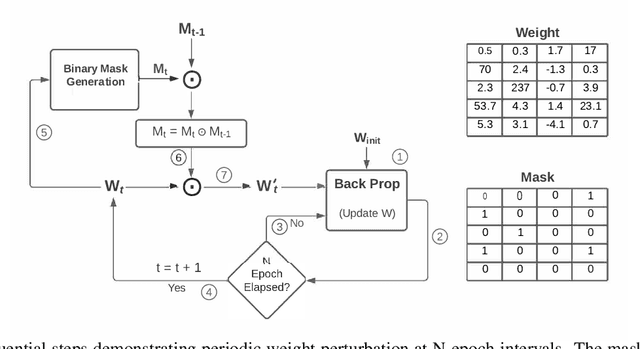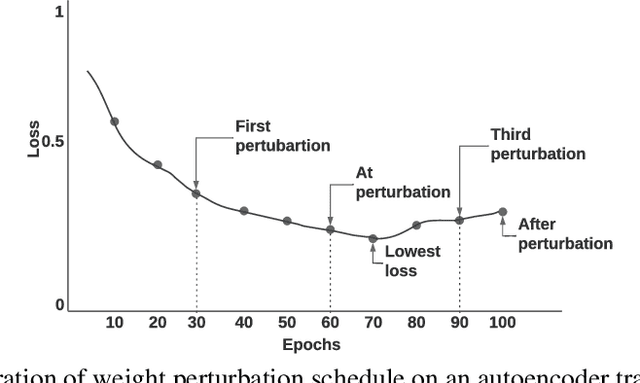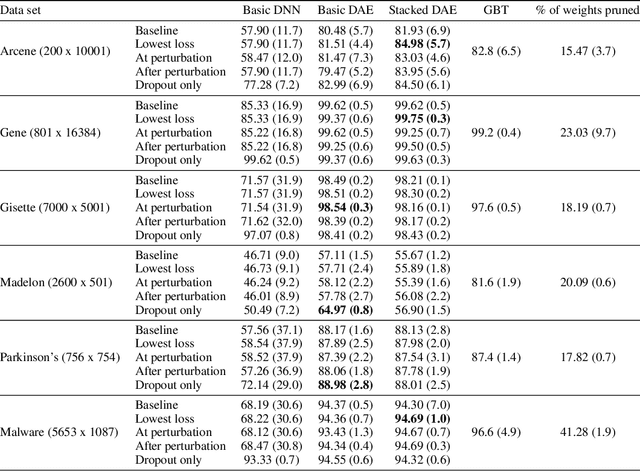Manar Samad
Perturbation of Deep Autoencoder Weights for Model Compression and Classification of Tabular Data
May 17, 2022



Abstract:Fully connected deep neural networks (DNN) often include redundant weights leading to overfitting and high memory requirements. Additionally, the performance of DNN is often challenged by traditional machine learning models in tabular data classification. In this paper, we propose periodical perturbations (prune and regrow) of DNN weights, especially at the self-supervised pre-training stage of deep autoencoders. The proposed weight perturbation strategy outperforms dropout learning in four out of six tabular data sets in downstream classification tasks. The L1 or L2 regularization of weights at the same pretraining stage results in inferior classification performance compared to dropout or our weight perturbation routine. Unlike dropout learning, the proposed weight perturbation routine additionally achieves 15% to 40% sparsity across six tabular data sets for the compression of deep pretrained models. Our experiments reveal that a pretrained deep autoencoder with weight perturbation or dropout can outperform traditional machine learning in tabular data classification when fully connected DNN fails miserably. However, traditional machine learning models appear superior to any deep models when a tabular data set contains uncorrelated variables. Therefore, the success of deep models can be attributed to the inevitable presence of correlated variables in real-world data sets.
 Add to Chrome
Add to Chrome Add to Firefox
Add to Firefox Add to Edge
Add to Edge